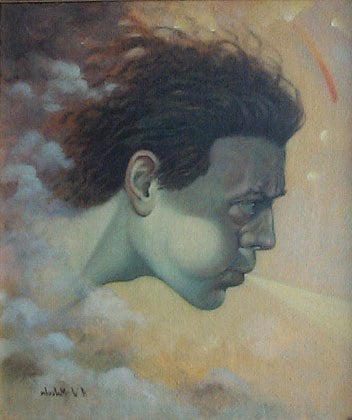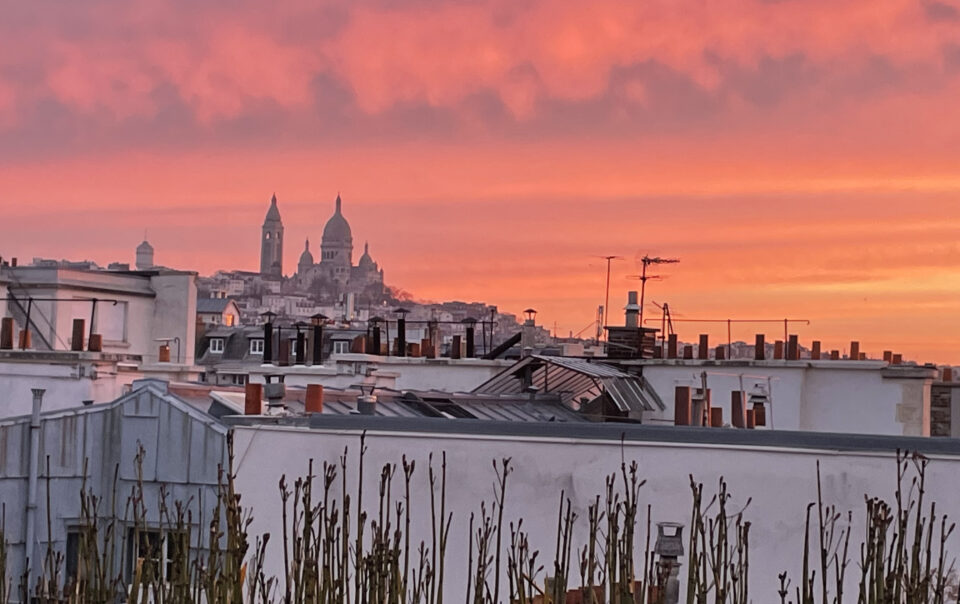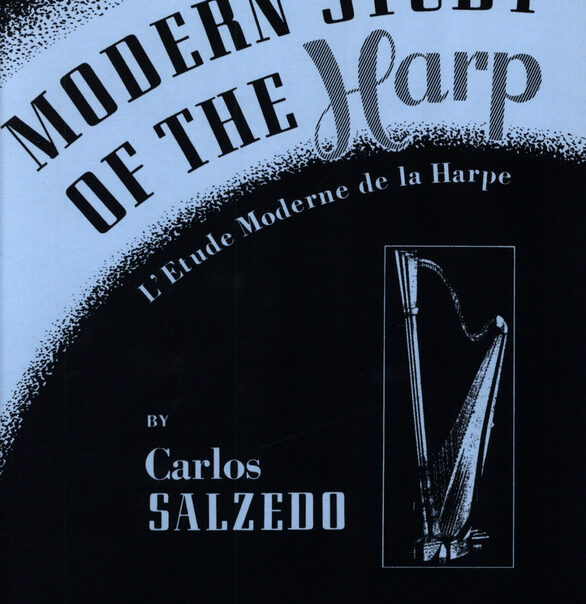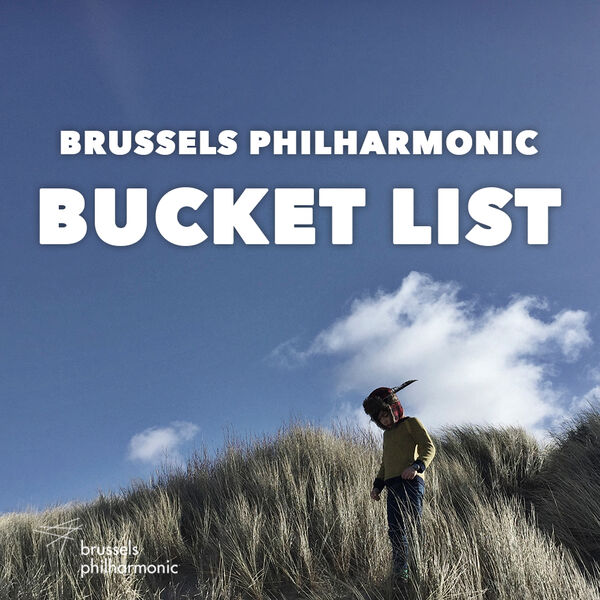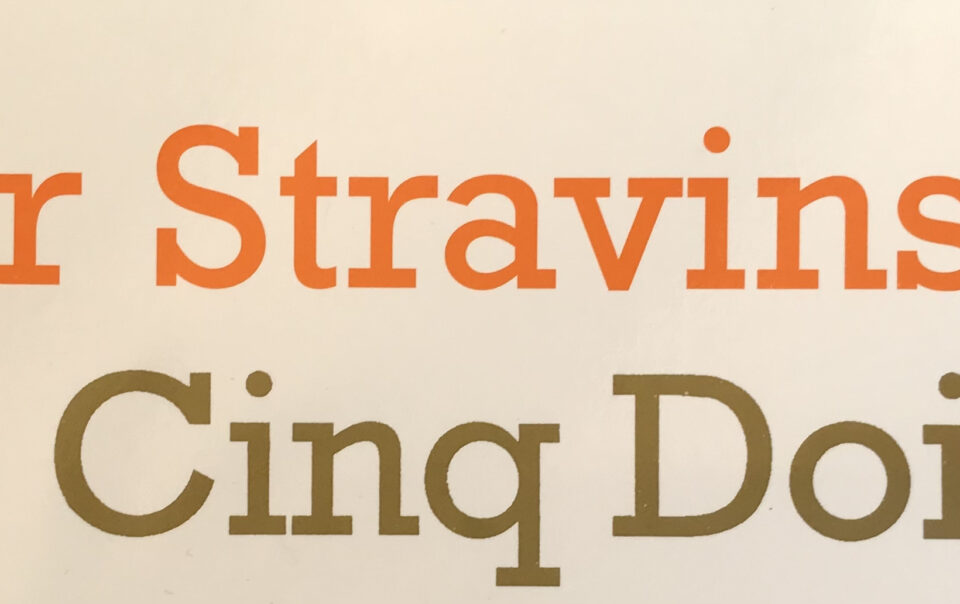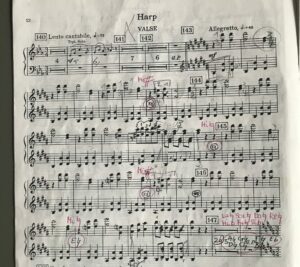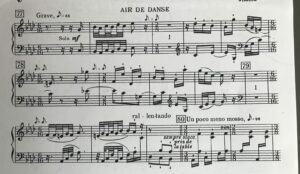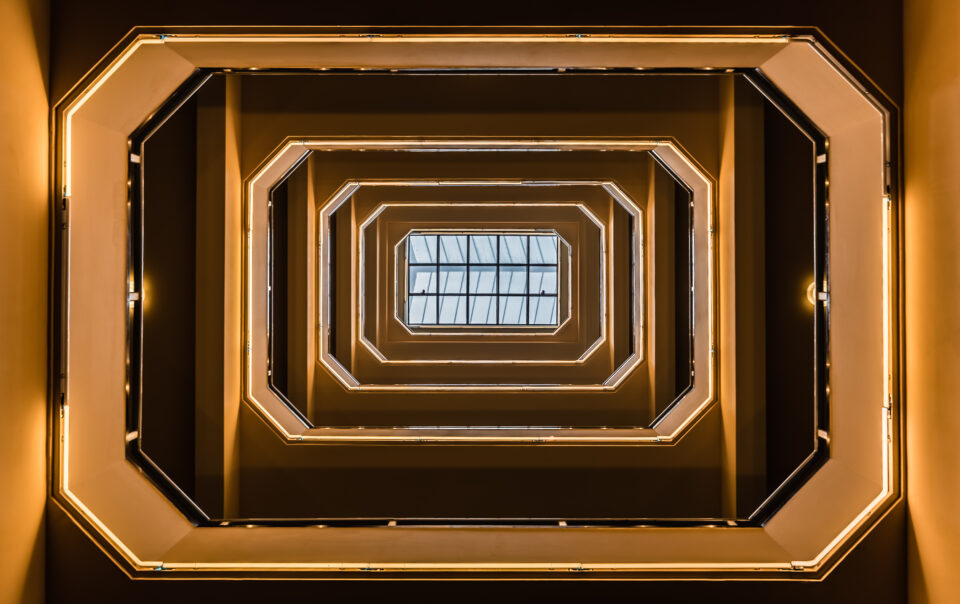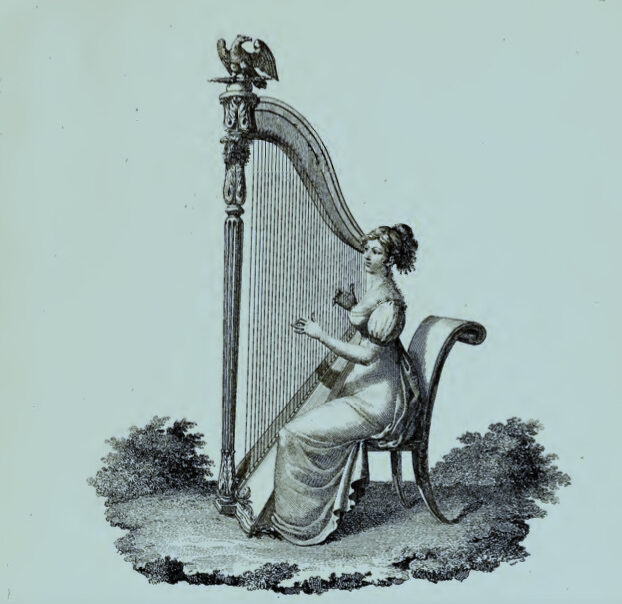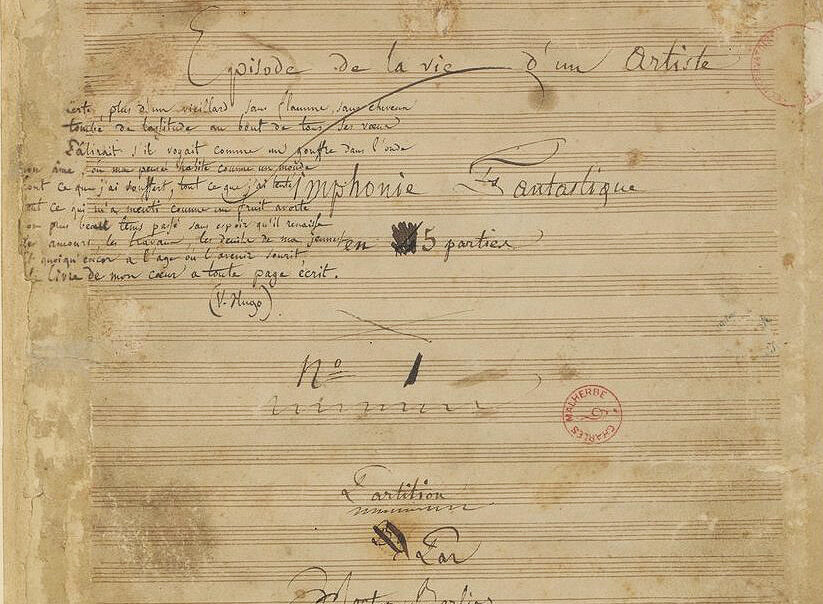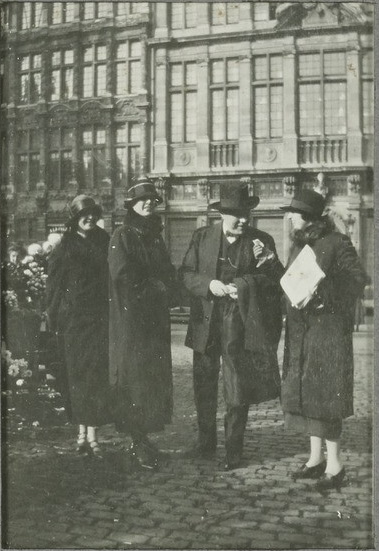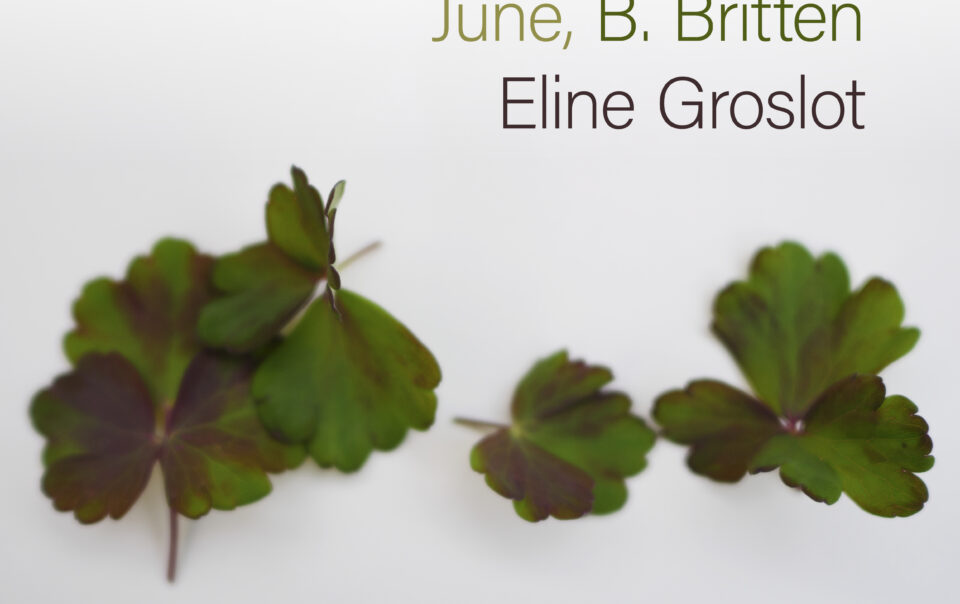(english below)
Ondertussen is het een jaar geleden dat ik startte met mijn ‘Gps voor harp repertoire’ en wat een boeiend jaar was het al, maar nog spannender is vast te stellen dat uit de geplante zaadjes van vorig jaar, een eerste oogst op komst is.
Tijdens mijn aftoetsende contacten met componisten, leerde ik Geoffrey Gordon kennen. Hij was net een solo werk voor harp aan het schrijven (in opdracht van het Frankfurt Radio Symfonisch orkest en collega harpiste Anne-Sophie Bertrand) en zo was een aanknopingspunt snel gevonden. Hij vertelde me hoe hij er van droomde om aan zijn reeds indrukwekkende reeks concerti, ook een concerto voor harp te kunnen toevoegen. En kijk, één jaar later staan de eerste 2 delen al op mijn pupiter en zal de première plaatsvinden op 28 oktober 2022!
Ook deze weg was een avontuur: aanvankelijk mailden we wat over koetjes en kalfjes en verwachtte ik helemaal niet dat dit concreet ergens naar zou leiden – hoe vaak blijven zulke gesprekken niet bij dromen over – , maar al snel kwam het besef dat de liefde voor de harp, de behoefte om nieuw repertoire te spelen -en voor Geoffrey, te schrijven- voor beiden even sterk was/is.
Vervolgens wat lichte paniek!: de gesprekken zijn te ver om er niets mee te doen, maar hoe pakken we dit praktisch aan? Hiervoor kan ik alleen maar mijn oprechte dank aan Brussels Philharmonic uiten, zij geloven in dit project en sprongen mee op de kar om deze creatie mogelijk te maken!
En dan trekt de componist zich terug en moest ik wachten, niet bepaald één van mijn sterke punten 🙂 en hopen dat het zou bekoren, stel je voor dat er een werk in je mail landt, waar je geen enkele affiniteit voor voelt…
Gelukkig is dat niet zo, integendeel!
Het werk draagt de titel ‘Eolian’, naar ‘The Eolian Harp’ een gedicht van Samuel Taylor Coleridge.
Het concerto is erg harpig(als dat nog geen woord is, dan voer ik het nu officieel in 🙂 doch zonder in clichés te vervallen. De orkestratie is bijzonder sfeervol en kleurrijk, voorlopig kan ik nog niet meer vertellen…
Wel vind ik het leuk om fragmenten uit onze uitgebreide mailcorrespondentie te delen in mijn blog; de geboorte van een nieuw concerto voor harp:
E: We connected somewhere around May last year, just at the starting point of my gps for harp repertoire, was this a coincidence or did the project attract your attention?
G: The project did draw my attention! I had been interested in writing a harp concerto, but I had not identified the right partners – until I found you and your project and Brussels Phil! And how fortunate for me that I did – it has been an absolute pleasure working with you and the administration of the orchestra, from the very start of conversations. Incredibly professional and cordial and quite inspirational!
E: At that point a solo piece for harp was about to be created by Ann-Sophie Bertrand, ‘Jeux de creation’. I understand that this piece was commissioned, was this the first time ever you wrote for harp solo (I noticed that you have a chamber work for trio sonata!)
G: Jeux de creation was indeed a commission, and it was not the first time I had written for harp, certainly, as the instrument has played an important role in my chamber and orchestral music for a long time. And as you say, I have a harp trio, called Bright White Smooth, which I wrote some time ago. But Jeux de creation was my first extended work for solo harp. Coming as it did, just before we began planning Eolian, it was a great way to become immersed in this amazing instrument.
E: What do you find difficult/challenging/exciting in writing for harp?
G: Well, as you know, it is a fantastic instrument! Capable of so many sounds and an extraordinary range, both in terms of pitch and dynamic. I think you could spend a lifetime exploring all of the ways this instrument can sound – it obviously does things no other instrument can do. But of course this comes at a price! There are challenges – most difficult is the tuning! As contemporary harmonic language has become unhinged from tonality, this challenge has become greater than ever before. A composer must always plan far in advance, in order to have the pitches available and within a timeframe that allows the player to shift those pedals! But as with any restriction, this is – in a way – extraordinarily liberating. The harp frees you from the habits of the other instruments – I think I write differently for this instrument, from conception to execution. It is fascinating.
E: You already wrote quite a lot of concerti, winds in particular, how different is your approach in choosing themes, topics for each instrument and what inspires you in writing for harp?
G: I have written many concerti – and many will follow, with a second cello concerto on the way, as well as new works for bassoon (BBC Philharmonic and Orchestre de la Suisse Romande), oboe (Frankfurt Radio Symphony Orchestra) English horn (Antwerp Symphony Orchestra) two clarinet concerti (a long list of collaborators on these!) and plans for my first piano concerto. So if nothing else, I will be busy (if I left anyone out, my apologies!). One of the great pleasures of my job is having the opportunity to explore all sorts of subjects, arts, artists, literature, paintings, poetry, etc., while writing these works. And this was true when planning Eolian. The Coleridge poem seemed like such a natural fit, with a text that is magical and evocative and perfectly suited to the subtleties of the harp. I have had those words – which are also inscribed on the movements of the score – in my mind as I write. I hope the audience (and the performers!) will feel these words are woven intrinsically into the notes of Eolian … and that they are as inspired as I was writing this piece.
Already one year has past, since I started my ‘GPS for harp repertoire’ and what an exciting year it has been, but it is even more thrilling to see that the seeds planted last year are growing and ready to be harvested.
During my exploratory contacts with composers, I got to know Geoffrey Gordon. At this time he was writing a solo work for harp (commissioned by the Frankfurt Radio Symphony Orchestra and colleague Anne-Sophie Bertrand) and as such conversation was easily made. He told me how he dreamed of adding a concerto for harp to his already impressive series of concertos. And look, one year later, the first two movements are already on my stand and the premiere will take place on the 28th October 2022!
What a great adventure it has already been: at first, we mailed about this and that and I didn’t expect it would lead to anything concrete – how often do such conversations remain daydreaming – but it soon dawned that the love for the harp, the desire to play new repertoire – and to write in Geoffrey ’s case- was/is equally strong for both of us.
Then, some light panic: the conversations were too far gone and a project inevitable, but how were we going to tackle this? For this I can only express my sincere thanks to the Brussels Philharmonic, they believe in this project and jumped on the bandwagon to make this creation possible!
Next, the composer withdrew from the scene and I had to wait, not exactly one of my strongest points 🙂 and hope that I would be enchanted, imagine that a work lands in your mail, for which you feel no affinity whatsoever…
Fortunately, this is not the case, on the contrary!
The work is entitled ‘Eolian’, after ‘The Eolian Harp’, a poem by Samuel Taylor Coleridge.
The concerto is very harp-like but without falling into clichés. The orchestration is very atmospheric and colorful, that’s all I can tell for now….
I do like to share some excerpts from our extensive mail correspondence in my blog; the birth of a new concerto for harp.
E: We connected somewhere around May last year, just at the starting point of my gps for harp repertoire, was this a coincidence or did the project attract your attention?
G: The project did draw my attention! I had been interested in writing a harp concerto, but I had not identified the right partners – until I found you and your project and Brussels Phil! And how fortunate for me that I did – it has been an absolute pleasure working with you and the administration of the orchestra, from the very start of conversations. Incredibly professional and cordial and quite inspirational!
E: At that point a solo piece for harp was about to be created by Ann-Sophie Bertrand, ‘Jeux de creation’. I understand that this piece was commissioned, was this the first time ever you wrote for harp solo (I noticed that you have a chamber work for trio sonata!)
G: Jeux de creation was indeed a commission, and it was not the first time I had written for harp, certainly, as the instrument has played an important role in my chamber and orchestral music for a long time. And as you say, I have a harp trio, called Bright White Smooth, which I wrote some time ago. But Jeux de creation was my first extended work for solo harp. Coming as it did, just before we began planning Eolian, it was a great way to become immersed in this amazing instrument.
E: What do you find difficult/challenging/exciting in writing for harp?
G: Well, as you know, it is a fantastic instrument! Capable of so many sounds and an extraordinary range, both in terms of pitch and dynamic. I think you could spend a lifetime exploring all of the ways this instrument can sound – it obviously does things no other instrument can do. But of course this comes at a price! There are challenges – most difficult is the tuning! As contemporary harmonic language has become unhinged from tonality, this challenge has become greater than ever before. A composer must always plan far in advance, in order to have the pitches available and within a timeframe that allows the player to shift those pedals! But as with any restriction, this is – in a way – extraordinarily liberating. The harp frees you from the habits of the other instruments – I think I write differently for this instrument, from conception to execution. It is fascinating.
E: You already wrote quite a lot of concerti, winds in particular, how different is your approach in choosing themes, topics for each instrument and what inspires you in writing for harp?
G: I have written many concerti – and many will follow, with a second cello concerto on the way, as well as new works for bassoon (BBC Philharmonic and Orchestre de la Suisse Romande), oboe (Frankfurt Radio Symphony Orchestra) English horn (Antwerp Symphony Orchestra) two clarinet concerti (a long list of collaborators on these!) and plans for my first piano concerto. So if nothing else, I will be busy (if I left anyone out, my apologies!). One of the great pleasures of my job is having the opportunity to explore all sorts of subjects, arts, artists, literature, paintings, poetry, etc., while writing these works. And this was true when planning Eolian. The Coleridge poem seemed like such a natural fit, with a text that is magical and evocative and perfectly suited to the subtleties of the harp. I have had those words – which are also inscribed on the movements of the score – in my mind as I write. I hope the audience (and the performers!) will feel these words are woven intrinsically into the notes of Eolian … and that they are as inspired as I was writing this piece.
